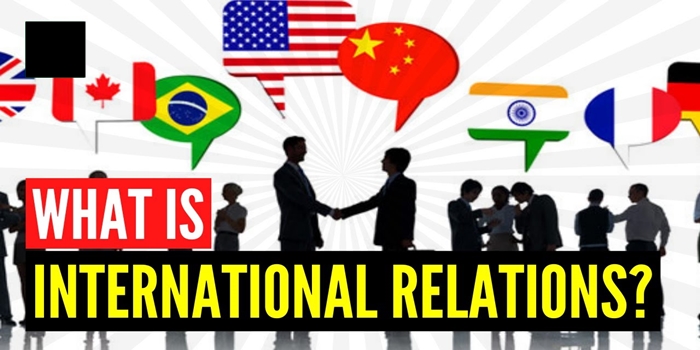In this article, we discussed the meaning of international relation, the examples, the scope, the features and we also talked about the importance.
Definition
International Relations is defined as the study of the relationships between nations, states, and other actors on the global stage. It involves analyzing the interactions between sovereign entities, intergovernmental organizations, non-state actors, and multinational corporations. IR is concerned with understanding the dynamics of power, cooperation, and conflict among these actors, and how they shape international institutions, norms, and laws.
Examples of international relations
The Examples include the Following:
Trade agreement,
War,
Human rights organization actions that operate in multiple states,
Multinational corporations.
The scope of international relations
Groups: Nations, states, governments, peoples, regions, alliances, confederations, international organizations, industrial organizations, and cultural organizations
Subjects: Economics, geography, legal studies, sociology, and politics
Subfields: Diplomacy, foreign policy, conflict resolution, globalization, and international law
IR is a multidisciplinary field that draws from other disciplines, including:
anthropology, economics, geography, history, law, philosophy, and sociology.
IR is a field with several schools of thought, including realism, liberalism, and constructivism.
The scope of IR is constantly changing because it’s a focus of data and methods that are useful for answering questions at a given time. The boundaries that divide one field of knowledge from another are not fixed, but are convenient ways to organize facts and methods.
Features of International Relations
International Relations has several distinct features that set it apart from other academic disciplines. Initially, it is concerned with the study of interactions between independent entities, making it integrally complex and diverse. Secondly, it involves the analysis of both state and non-state actors, recognizing the increasing importance of non-governmental organizations, transnational networks, and individuals in it Finally, it is characterized by a multidisciplinary approach, drawing on insights from economics, political science, sociology, anthropology, and history
Importance of International Relation
- Understanding Global Issues: IR helps us understand the complexities of global issues such as climate change, terrorism, pandemics, and economic crises.
- Promoting Peace and Security: By studying IR, policymakers and scholars can develop strategies to prevent conflicts and promote peace and security.
- Advancing Cooperation: IR fosters greater cooperation among states and non-state actors, leading to better outcomes in areas such as trade, human rights, and sustainable development.
- Addressing Emerging Challenges: IR enables us to respond effectively to emerging challenges such as cyber threats, nuclear proliferation, and the rise of new global powers.
Theories of International Relations
There are several theories that underpin the study of IR, each offering a unique perspective on the nature of These theories include:
- Realism: This theory views international relations as an arena where states compete for power and security. Realists believe that the balance of power is the central determinant of international relations.
- Liberalism: Liberals argue that it can be based on cooperation and mutual benefit rather than competition and conflict. They emphasize the importance of economic interdependence, global institutions, and norms.
- Constructivism: Constructivists focus on the role of ideas, norms, and identity in shaping international relations. They argue that the way actors perceive and construct reality influences their behavior and interactions.
- Marxism: Marxist theory sees it as a reflection of the capitalist mode of production. Marxists argue that the pursuit of profit and resources drives states to exploit and dominate one another.
Conclusion
International relations are the study of interactions and relationships between two states or a state and an organization. The combination of all states in the world is referred to as the international system. This system is acknowledged because relationships between two countries will necessarily affect the relationships of these states with other states. Thus, all international relations affect the global community. The process of making policy decisions regarding other countries or states is referred to as international politics. There are five main types of theories that majors and experts utilize when analyzing it


